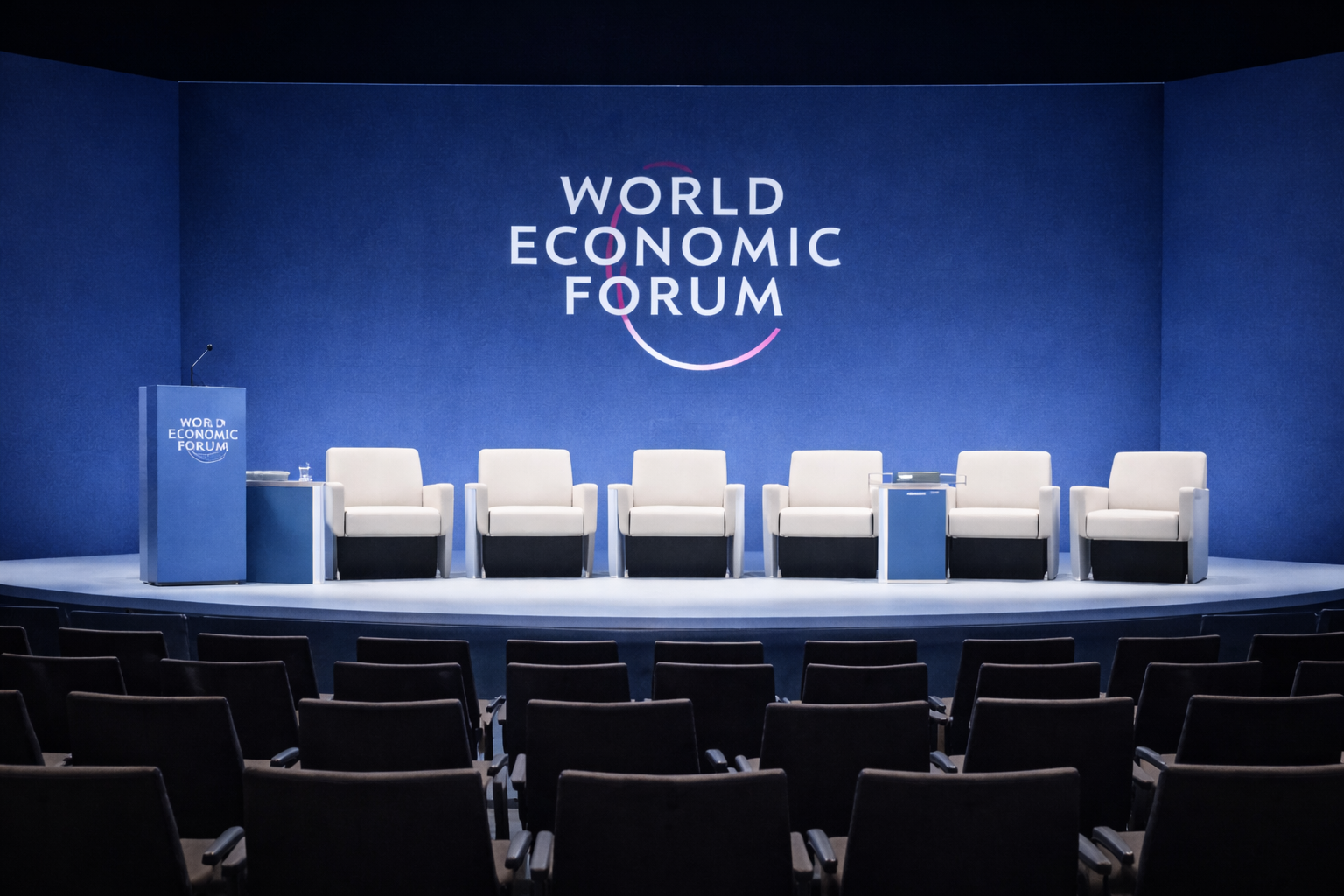Politically free, economically chained: Why the West is losing its appeal
Everyone felt free. Germans, French, Americans – and yes, even New Zealanders and Danes. But freedom is not a one-dimensional feeling. Political rights, civil liberties, property protection, competitiveness, approval speeds, tax and regulatory paths – the sum of these factors is a country’s actual freedom profile. This profile is crucial for all of us, but especially for entrepreneurs and investors: it determines how capital can work, how calculable risks are – and whether growth receives social tailwinds or headwinds.
I would like to dare give an assessment of the current situation. We in the West claim freedom as our core value, but where exactly does the West stand today in the global competition for freedom – politically, economically, and culturally? What does this mean for personal development opportunities, capital allocation, and the operational scaling of companies? And what can we learn from a supposed paradox: societies can be more politically restrictive, but economically and culturally more “capitalism-friendly” than many Western democracies.
Political freedom: stable – yet under threat of erosion
Let’s start with the obvious: political rights and civil liberties are high in classic Western democracies. Freedom House has been documenting this for decades. Germany, France, the US, and Switzerland are rated as “free” with high scores in the current edition. At the same time, Freedom House describes what is now the 19th consecutive year of global decline in political freedom; in 2024, more countries deteriorated than improved. For investors, this is not an academic issue: political erosion increases the variance of future policy changes – and thus discount factors, especially in highly regulated sectors.(Source)
Yes, the West remains politically free. But political freedom is no longer a unique selling point – and the direction is not automatically positive. Those who scale operations must therefore treat political risk in the same way as interest rate, energy, or supply chain risk: actively manage it instead of passively hoping for the best.
Economic freedom: the underestimated lever of execution
For entrepreneurs and investors, economic freedom often matters even more than political headlines in their day-to-day work. It determines how quickly they can start a business, obtain permits, hire talent, repatriate capital, or secure assets. Here, the Index of Economic Freedom (Heritage Foundation) provides a robust framework: 12 indicators in four pillars – rule of law, government size, regulatory efficiency, and open markets. This makes the index useful in practice because it measures where execution frictions arise. (Source)
The locational profiles differ more significantly than many assume. In 2025, Germany will be rated “mostly free” with 71.6 points, ranking 22nd globally (14th in Europe) – 0.5 points lower than in the previous year. France ranks significantly lower, the US has been on a slight downward trend for years, while smaller, reform-minded economies (Ireland, Estonia, etc.) perform over proportionally well. In practice, this means that in a country with the same political freedom, the economic “throughput” of bureaucracy, tax, and labor market regulations can vary greatly. (Source)
Also relevant: the Human Freedom Index (Fraser Institute/Cato). It combines personal and economic freedom on a scale of 0–10 and illustrates a country’s “mix.” In the 2024 edition, Switzerland ranks first, Germany ranks 14th, the US and UK share 17th place, and France ranks 34th. This composite figure is useful for reconciling the political narrative with economic reality – and explains why two “free” countries can generate very different frictions in terms of entrepreneurship. (Source)
The cultural dimension: capitalism-friendliness vs. a society of envy
Something entrepreneurs rarely talk about, but which has a significant impact on societies: How does a society view wealth, entrepreneurship, and achievement? This is precisely where Rainer Zitelmann’s work comes in. He has provided comparable metrics in the form of the Social Envy Coefficient (ratio of “envious” to “non-envious” people), the Personality Trait Coefficient (positive vs. negative attributions to rich people), and the Rich Sentiment Index derived from these. The core findings are uncomfortably clear: France and Germany show rather high envy values and more negative attributions in the studies; the US and UK show significantly lower levels of envy; countries in East Asia – Japan, South Korea, Vietnam – are surprisingly capitalism-friendly in their attitudes toward wealth. (Source)
Why is this relevant in practice? Because social acceptance of wealth creation is usually accompanied by less political demand for “punitive” regulation. High social envy correlates empirically with higher approval of wealth-oriented taxation and broad regulation – and thus higher transaction costs for growth. Conversely, positive narratives of upward mobility create tailwinds for risk-taking: founders and investors are not seen as a problem, but as a solution. For locations, this is an intangible but robust competitive advantage.
Vietnam is an intriguing exception: politically not free in the Western sense, but with an above-average positive attitude toward wealth and entrepreneurship. In surveys, “capitalism” does not have negative connotations there; young Vietnamese cite Japan, South Korea – and increasingly the US – as role models. The paradox is real: cultural friendliness toward capitalism does not arise exclusively in liberal democracies. For investors, the signal is clear: attitude alpha exists – those who recognize early cultural momentum waves are better able to anticipate regulatory paths and market penetration. (Source)
The West: still a benchmark – but no longer a monopoly
Let’s put the pieces of the puzzle together. Politically, the West remains a role model – albeit with clear signs of erosion. Economically, the picture is mixed: while parts of Europe are heavily regulated and the US is falling behind in individual indicators, smaller, reform-driven economies are leading the way. Culturally, parts of Asia are highly focused on advancement, which – combined with industrial policy – could make them investment magnets over the next ten years. The Human Freedom Index (HFI) underscores this heterogeneity: the top spots remain dominated by the West, but their lead is not a guarantee.
For capital allocation, this means that the old heuristic “Western Europe/USA = best return on freedom” no longer works without question. It must be replaced by a triple screening: political stability (Freedom House), economic freedom (Heritage), and cultural capitalism friendliness (Zitelmann metrics as a proxy). Those who consistently apply this triptych not only distribute country weights differently – they change the order of the steps: Today, it is common to start in less regulated, more capital-friendly jurisdictions, secure product-market fit and regulatory “patterns” there, and only then expand into larger, more difficult markets.
Technological sovereignty as a litmus test: the Karp thesis
One key aspect that is often missing from debates about freedom is the technological basis. In his book The Technological Republic, Alexander C. Karp makes it clear that political freedom remains an empty phrase if the West loses technological control over key areas. It is not just about AI and data, but about the entire industrial foundation – from software and infrastructure to defense systems.
Karp criticizes Silicon Valley for focusing too much on consumption, new markets, and the optimization of advertising and platform economies over the past two decades. This has misdirected much of its innovative power – away from securing Western values and toward short-term business models. His diagnosis: if the West wants to seriously claim a liberal leadership role again, it must invest in the big, hard technologies that guarantee sovereignty and self-defense.
This is doubly relevant for investors: First, public-private partnerships are once again taking center stage – from energy and data centers to the defense industry and critical infrastructure. Second, the value of locations that can regulate quickly and pragmatically without stifling innovation is increasing. This is precisely where economic freedom and technological ambition converge – those who achieve speed and depth here will determine the next era of Western competitiveness. (Source)
What does this mean in practical terms – for entrepreneurs and investors?
1. Portfolio and pipeline design according to freedom profile
Use the Heritage Index as an early indicator of execution friction. Check the pillars of “regulatory efficiency” and “open markets” in target markets – these are where the bottlenecks that slow down projects are located: labor law, permits, foreign exchange, and investment freedom. Supplement this with Freedom House scores to better weigh political volatility – especially in election years or when there is weak separation of powers. And put a cultural lens on it: in markets with low social envy and a positive perception of wealth, sales often scale faster because success is not an act of justification.
2. Sequence instead of dogma
“Starting in the largest market” used to be plausible. Today, “starting where economic freedom and capitalism-friendliness are high” is often superior: faster learning, lower regulatory cluster risk, better capital efficiency. Scaling into more demanding markets follows once the product, processes, and compliance have “hardened.” Here, the HFI helps as a compass because it integrates political and economic dimensions.
3. Locations for teams, IP and liquidity
Tax and asset issues are important – but not sufficient. The decisive factors are the speed of approvals and justice, property protection, and the predictability of regulations. Heritage measures this in “Rule of Law” and “Open Markets.” Those who build IP-intensive businesses should place their backbone where the law and capital flows are robust – and where societies do not frame entrepreneurs as a moral problem. This reduces non-business risks in everyday life.
4. Tech sovereignty as an alpha source
Karps’ argument is compelling for allocators: markets that institutionalize government-tech cooperation will offer disproportionate opportunities in AI, cyber, and dual-use hardware – but with governance requirements. Anyone investing in these areas needs policy literacy: the ability to understand both democratic legitimacy and security policy necessities.
5. Communication into the ecosystem
Capitalism-friendliness can be shaped. Industries that systematically demonstrate utility value and opportunities for advancement reduce political pressure for new taxes/prohibitions. This is not a PR stunt, but risk management. Zitelmann’s findings suggest that the more comprehensible the performance and benefits of wealth creation are, the less inclination there is toward “punitive policies.”
Conclusion: Rethinking freedom – as a portfolio of politics, market, and culture
The West is not a thing of the past. But it does not have a sole and ideological claim to the issue of freedom. The West is not “witten off.” But it is no longer the sole benchmark. Politically, it remains strong; economically, it is inconsistent; culturally, it is struggling with itself. Anyone making location decisions today should read freedom profiles in three dimensions:
1. Political freedom as protection against arbitrariness.
2. Economic freedom as a lever for speed and capital efficiency.
3. Capitalism-friendliness as a social “lubricant” that legitimizes growth and dampens regulatory pressure.
This does not result in a simple new trend toward Asia, but rather a more precise global portfolio. There are still top Western locations. At the same time, there are non-Western markets with astonishingly high growth potential. And there are countries where the political rhetoric of freedom is loud, but the economic reality is slowly becoming more difficult. Those who structure their investments, start-ups, and scaling in this way will find new opportunities in a multipolar freedom: freedom as a strategy – not as an ideology.



